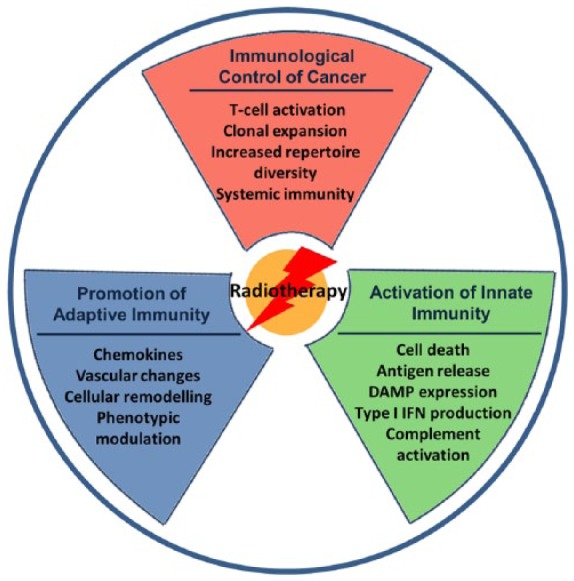Figure 1.

Immune modifying effects of radiotherapy. Treatment of cancer with radiotherapy results in multiple pro-immunogenic, immune-modulatory and microenvironmental changes which contribute to the generation of anti-tumour immunity. Exposure of tumour cells to radiation induces antigen release, hallmarks of immunogenic cell death including damage-associated molecular pattern and type I interferon release, and complement activation, which contribute to recruitment, maturation and enhanced antigen processing by dendritic cells. Tumour cells may undergo phenotypic modulation, increasing expression of surface MHC I, ICAM, death receptors and NKG2D ligands, making them more susceptible to immune attack. In addition, radiation can recalibrate the immune contexture of the tumour microenvironment, promoting T-cell recruitment through release of pro-inflammatory cytokines and cellular remodelling. These molecular changes bridge innate and adaptive immunity, reshaping the T-cell repertoire and inducing clonal expansion and infiltration of tumour-specific lymphocytes, which can mediate eradication of primary and distal disease, and generate durable immunity.
